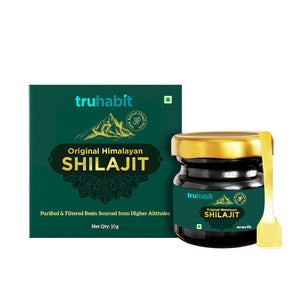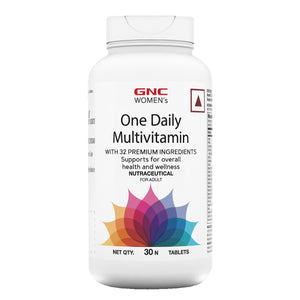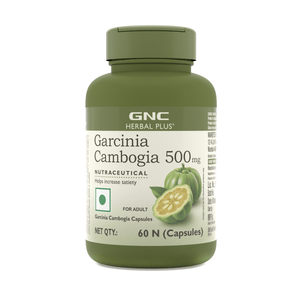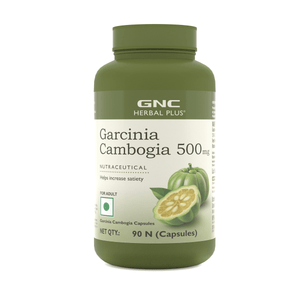You might have heard and read about people including Moringa tea in their everyday routine. If you’re curious to know about Moringa tea and its benefits, then you’re at the right place as we will be sharing all the information regarding Moringa tea here. As always, don’t forget to consult your doctor before including any supplement, including Moringa tea, in your wellness routine.
What is moringa tea?
Moringa tea is a type of herbal tea made from the leaves of a Moringa oleifera tree. Moringa oleifera is a fast-growing tree native to some parts of Asia and Africa. It is often referred to as the ‘Miracle Tree’ due to its various health benefits.
Moringa tea is known for its high nutritional content and is loaded with vitamins, minerals, and antioxidants. It contains Vitamin C, Vitamin A, Calcium, Iron, Potassium, and Antioxidants, such as Quercetin and Chlorogenic Acid.
Moringa tea benefits
Some of the main benefits of Moringa tea include –
Moringa tea offers several potential benefits due to its rich nutrient profile and bioactive compounds. While more research is needed to fully understand the extent of these benefits, here are some potential advantages associated with Moringa tea –
- Powerhouse of nutrients - Moringa tea is packed with essential vitamins, minerals, and antioxidants, including Vitamin C, Vitamin A, Calcium, Iron, Potassium, and various Polyphenols. These nutrients play a vital role in supporting overall health, immune function, and cellular processes.
- Rich in antioxidants - Moringa tea is rich in Antioxidants, such as Quercetin and Chlorogenic Acid, which help protect the body against oxidative stress and free radical damage. Antioxidants help reduce inflammation, support cardiovascular health, and potentially lower the risk of chronic diseases.
- Has anti-inflammatory effects – Studies suggest that Moringa tea may possess anti-inflammatory properties, potentially helping reduce inflammation in the body. Chronic inflammation is associated with various health conditions, and consuming anti-inflammatory substances may have beneficial effects.
- May regulate blood sugar levels - Moringa has been studied for its potential to regulate blood-sugar levels. Some research suggests that compounds found in Moringa, such as Isothiocyanates, may help improve insulin sensitivity and glucose tolerance, which could be beneficial for individuals with diabetes or those at risk of developing the condition.
- Helps with digestive support - Moringa tea contains fiber, which is important for promoting healthy digestion. Adequate fiber intake can support regular bowel movements, promote gut health, and contribute to a feeling of fullness.
- Boosts energy - While Moringa tea does not contain caffeine, some individuals report feeling energized after consuming it. This may be attributed to its nutritional content, including B-Vitamins, Iron, and other compounds, which can help support energy metabolism.
When and how to consume Moringa tea?
Moringa tea can be consumed at any time of the day, depending on your personal preference and health goals. Here are some guidelines on when and how to consume Moringa tea –
Time of day
Moringa tea does not contain caffeine, so it can be enjoyed throughout the day without concerns of interfering with sleep. However, some people find it energizing, so you may prefer to consume it in the morning or early afternoon to take advantage of its potential energy-boosting effects.
Preparation
To prepare Moringa tea, follow these steps -
- Boil water and let it cool slightly for a few minutes.
- Add 1 to 2 teaspoons of dried moringa leaves (or a moringa tea bag) to a cup.
- Pour the hot water over the leaves and let it soak for about 5 to 10 minutes to extract the flavors and nutrients.
- Strain the tea or remove the tea bag.
- You can drink it as is or add a squeeze of lemon, honey, or other natural sweeteners to enhance the taste, if desired.
Serving size
Start with 1 cup of Moringa tea per day and gradually increase the amount, if desired. However, it's generally recommended to limit consumption to 2-3 cups per day to avoid excessive intake of nutrients and to allow for a balanced diet.
Considerations
While Moringa tea is generally safe for most people, it's important to keep the following considerations in mind:
- If you have any existing medical conditions or are taking medications, consult with a healthcare professional before consuming Moringa tea.
- Pregnant or breastfeeding women should exercise caution and seek medical advice before consuming any supplement, including Moringa tea.
- As with any herbal tea or supplement, listen to your body and stop consuming Moringa tea if you experience any adverse effects.
Remember, Moringa tea should not replace a well-balanced diet but can be incorporated as a part of your healthy lifestyle.
Moringa tea for weight loss
Moringa tea has been suggested to aid in weight loss due to its potential benefits. However, it's important to note that the research on Moringa tea specifically for weight loss is limited, and its effectiveness may vary among individuals. Here are some potential ways in which Moringa tea may support weight loss –
- Nutrient rich and low calorie: Moringa tea is packed with vitamins, minerals, and antioxidants while being low in calories. Consuming a nutrient-dense beverage like moringa tea can help support overall health and weight management by providing essential nutrients without adding excessive calories.
- Appetite suppression: Some studies suggest that compounds found in Moringa, such as Isothiocyanates, may help suppress appetite and reduce food cravings. This can potentially contribute to weight loss efforts by promoting portion control and reducing calorie intake.
- Increased metabolism: Moringa tea contains compounds that have been associated with increased metabolism and fat burning. While more research is needed, it's possible that the bioactive components in Moringa may have a positive impact on metabolic rate, leading to enhanced calorie burning.
- Blood-sugar regulation: Moringa has been studied for its potential effects on blood-sugar regulation. By helping stabilize blood-sugar levels, it may help reduce cravings and prevent blood-sugar spikes and crashes, which can positively impact weight management.
It's important to remember that weight loss is a complex process that involves multiple factors, including diet, physical activity, and lifestyle choices. While Moringa tea may offer certain benefits that could support weight-loss efforts, it should not be seen as a magic solution or a replacement for a healthy, balanced diet and regular exercise.































